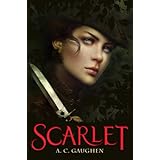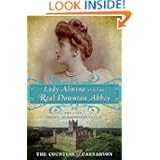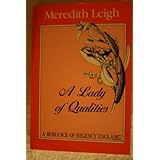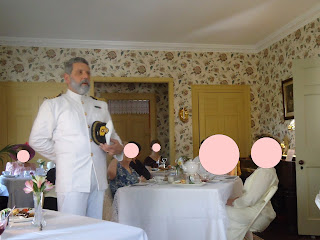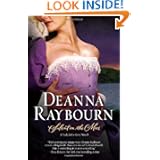What I Read This Weekend
Taking Heart by Rowena Summers -- Historical Romance
Set in late 1930s in Bristol, England this is a story about the coming of age of the Caldwell sisters. The family has always been comfortable and close-knit with a beautiful, laughing mother, a father whose haberdashery shop provides well for the family, three fiery-haired sisters and two spoiled brothers. The last few years for the Caldwells have been difficult. Since the birth of their little brother Teddy, Mother has been frail and her mind wanders. She needs nearly full-time care, putting a financial strain on the family. As the story opens, Mr. Caldwell breaks the news to the family that the large firm Prestons is buying out the whole row of shops and since he doesn't own his own shop and has made bad investments, he has no choice but to close the doors forever. The girls are outraged and come up with ways to make ends meet while almost 15-year-old Baz dreams of going to sea. Practical Imogen the eldest has been dreaming of a future with her newspaperman sweetheart. How can she abandon her family when they need her most? Throughout the next year of her life, Imogen will experience heartbreak, the loss of innocence and romance before she finally decides what she wants out of life. Meanwhile, sweet Elsie, the second eldest is comfortable taking a job in the new store thanks to the generous Prestons and quickly falls in love with the manager Joe. With war looming on the horizon will they have time for happily ever after? Sixteen-year-old Daisy dreams of being a dancer or an actress like her mother before her. It takes a tragedy to help her grow up and discover talents she didn't know she had while she also learns to overcome her snobbish ways. Headstrong Baz is determined to go his own way, causing much grief along the way. Throughout everything, the family is supported by their doing Aunt Rose and Uncle Bertie and Imogen's best friend Helen, a silly socialite and Helen's brother Jimmy, a serious young man with a crush on Immy. The plot moves very very slowly before it finally comes to an end at the outbreak of World War II. The romantic conclusion comes too quickly without much resolution. I had hoped in the beginning that this book would be an update of Jane Austen's novels but it wasn't at all. I never fully became engaged in this novel. Not only is the plot slow, the characters are annoying and unlikeable. Imogen is a young woman on the cusp of adulthood who deals with awakening sexuality and trite romantic dilemmas. I thought she needed to find herself before finding a man. Elsie is too good to be true but I liked her plot the best because it is very sweet and romantic. Daisy is young and foolish but her story is more compelling than her sisters'. She didn't get enough of the story and if I continue reading the series, I look forward to watching her grow up. She was the only one who really learned anything and transformed. The one character I did like initially turned out not to be who I thought they were. This book contains rather more sensuality than I would like and it also contains a scene of near rape that is described in rather a lot of detail. I do not plan to read the rest of the series.
After a blissful Mediterranean honeymoon, Lady Julia is in Darjeeling on a tea plantation with her sister Portia and brother Plum. Brisbane has elected to stay behind in Calcutta though Portia has asked for Julia and Brisbane to investigate the untimely death of Jane's husband. Portia is worried for the sake of Jane and her unborn child for if Freddie was killed for the inheritance then Jane and her unborn child are in danger. It has been difficult for two such strong-willed people such as Julia and Brisbane to come together in marriage. Julia is stubbornly determined to solve the mystery and present it to Brisbane as fait accompli when he arrives. This time she not only has to contend with a murderer but also a man-eating black tiger on the loose. (I found it hard to believe in the existence of a black tiger but according to Wikipedia there WAS a sighting of a black tiger in September 1895). She must work alone for Portia is busy attending to Jane and Plum is brooding over unrequited love. Julia has some assistance from the man the locals call The White Rajah who lives like a hermit but knows all the local gossip. She meets the eccentric local English gentry and also becomes reacquainted with her cousins Emma and the now widowed Lucy who live on the estate. The Peacocks is a beautiful location and Julia has trouble believing anyone could be a murderer. When Brisbane finally arrives the sparks fly. He would keep Julia tucked in a bandbox on the shelf while he goes off adventuring and Julia is determined to be a partner in all things. Julia of course ignores Brisbane and goes poking around learning everyone's darkest secrets. Nicholas also reveals himself to truly be Heathcliff in this novel. By the time the mystery is solved, Julia learns that not all is what it seems and she also discovers some surprising uncomfortable truths about herself and her family. If you've read the previous three books, you will have noticed a pattern that continues in this book : Julia and Brisbane work at solving the same mystery going about it differently without telling each other. Brisbane is a bit maddening in that way but Portia helps Julia to understand him better and he explains to Julia why he doesn't like her sleuthing. I am glad they talked it out and finally came up with a solution in the end. I don't think Julia is going to like the solution and they'll continue on as they always were butting heads. I still enjoyed their relationship but I think I should have stopped reading at the end of Silent on the Moor when they were blissfully happy. I don't like the darker aspects of their relationship though I have always had my misgivings about them as a couple. Though I liked the way the problems were resolved, I found Julia a bit irritating because she had to have things pointed out to her and I doubt she learned anything. I hope by the next novel she's grown up a bit and thought more about what her siblings and husband have told her. She is starting to remind me a bit of Stephanie Plum but not so ditzy. As for the mystery - it was a bit simple in the beginning and then went way off course to become something more than it seemed but in a different way from the others. Without spoiling the ending, I'll say that the investigation revealed dark undercurrents in paradise that would have come about anyway regardless of the investigation. I guessed a few pieces of the puzzle and finally figured out the murderer before it was revealed to Julia. What was revealed afterwards was truly surprising and shocking and I didn't feel that it really fit the characterization of the murderer. The motive didn't work for me. What was truly surprising is what was revealed as the reason for estrangement between two characters. I don't know if something of that nature would have been understood even by the most free-thinking 19th century people but the Victorians are always surprising me. The story drags on just a bit too long to tell us what happens to the characters and there's one more big shocker (that's not much a surprise to the reader) that upset me greatly though I see where the author wants to take the characters and why it had to happen. The final chapter wraps up the relationship plot and Julia and Brisbane's witty banter made me giggle. I want more light-hearted moments in future novels please!The real stand out of this novel is the setting. The author's research shines through to really create a description of this beautiful, magical place. I could easily picture it though I don't know much about India. I loved the natives and all the local color. The story barely touches on the caste system and the native Indian cultures but all of that is included in subtle ways and incorporated into the plot and dialogue nicely without stepping out of the story to explain things to the reader. Well done! This was not my favorite of the Lady Julia mysteries but I can't wait to find out what happens next! I would give this one 3 3/4 stars out of 5.
Dark Road to Darjeeling (Lady Julia Grey) by Deanna Reyborn
Contains SPOILERS for previous novels!!
After a blissful Mediterranean honeymoon, Lady Julia is in Darjeeling on a tea plantation with her sister Portia and brother Plum. Brisbane has elected to stay behind in Calcutta though Portia has asked for Julia and Brisbane to investigate the untimely death of Jane's husband. Portia is worried for the sake of Jane and her unborn child for if Freddie was killed for the inheritance then Jane and her unborn child are in danger. It has been difficult for two such strong-willed people such as Julia and Brisbane to come together in marriage. Julia is stubbornly determined to solve the mystery and present it to Brisbane as fait accompli when he arrives. This time she not only has to contend with a murderer but also a man-eating black tiger on the loose. (I found it hard to believe in the existence of a black tiger but according to Wikipedia there WAS a sighting of a black tiger in September 1895). She must work alone for Portia is busy attending to Jane and Plum is brooding over unrequited love. Julia has some assistance from the man the locals call The White Rajah who lives like a hermit but knows all the local gossip. She meets the eccentric local English gentry and also becomes reacquainted with her cousins Emma and the now widowed Lucy who live on the estate. The Peacocks is a beautiful location and Julia has trouble believing anyone could be a murderer. When Brisbane finally arrives the sparks fly. He would keep Julia tucked in a bandbox on the shelf while he goes off adventuring and Julia is determined to be a partner in all things. Julia of course ignores Brisbane and goes poking around learning everyone's darkest secrets. Nicholas also reveals himself to truly be Heathcliff in this novel. By the time the mystery is solved, Julia learns that not all is what it seems and she also discovers some surprising uncomfortable truths about herself and her family. If you've read the previous three books, you will have noticed a pattern that continues in this book : Julia and Brisbane work at solving the same mystery going about it differently without telling each other. Brisbane is a bit maddening in that way but Portia helps Julia to understand him better and he explains to Julia why he doesn't like her sleuthing. I am glad they talked it out and finally came up with a solution in the end. I don't think Julia is going to like the solution and they'll continue on as they always were butting heads. I still enjoyed their relationship but I think I should have stopped reading at the end of Silent on the Moor when they were blissfully happy. I don't like the darker aspects of their relationship though I have always had my misgivings about them as a couple. Though I liked the way the problems were resolved, I found Julia a bit irritating because she had to have things pointed out to her and I doubt she learned anything. I hope by the next novel she's grown up a bit and thought more about what her siblings and husband have told her. She is starting to remind me a bit of Stephanie Plum but not so ditzy. As for the mystery - it was a bit simple in the beginning and then went way off course to become something more than it seemed but in a different way from the others. Without spoiling the ending, I'll say that the investigation revealed dark undercurrents in paradise that would have come about anyway regardless of the investigation. I guessed a few pieces of the puzzle and finally figured out the murderer before it was revealed to Julia. What was revealed afterwards was truly surprising and shocking and I didn't feel that it really fit the characterization of the murderer. The motive didn't work for me. What was truly surprising is what was revealed as the reason for estrangement between two characters. I don't know if something of that nature would have been understood even by the most free-thinking 19th century people but the Victorians are always surprising me. The story drags on just a bit too long to tell us what happens to the characters and there's one more big shocker (that's not much a surprise to the reader) that upset me greatly though I see where the author wants to take the characters and why it had to happen. The final chapter wraps up the relationship plot and Julia and Brisbane's witty banter made me giggle. I want more light-hearted moments in future novels please!The real stand out of this novel is the setting. The author's research shines through to really create a description of this beautiful, magical place. I could easily picture it though I don't know much about India. I loved the natives and all the local color. The story barely touches on the caste system and the native Indian cultures but all of that is included in subtle ways and incorporated into the plot and dialogue nicely without stepping out of the story to explain things to the reader. Well done! This was not my favorite of the Lady Julia mysteries but I can't wait to find out what happens next! I would give this one 3 3/4 stars out of 5.



